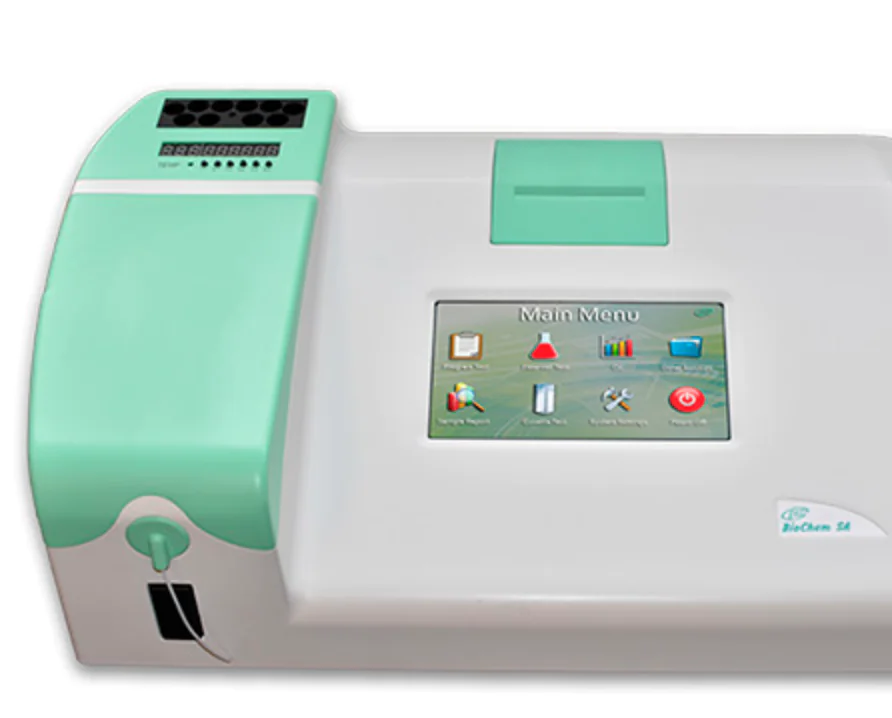The maximum efficiency of biochemical tests in the clinic, with just one sample, can be achieved thanks to biochemical analyzers; you can select them by clicking on the link.

With one test performed on one sample, biochemical and electrolyte parameters, as well as special parameters such as T4 and IDEXX SDMA, can be verified in just 15 minutes.
Results are available during the visit to help the owner better understand the patient's overall condition.
The 34-test menu includes advanced diagnostic tests, including fructosamine, phenobarbital, urine P:C, SDMA and progesterone.
A complete biochemical profile is a key element of the minimum database, which provides specific information about the functions of the kidneys, liver and pancreas, as well as other organs and systems. It includes tests for direct or indirect examination of the functions of organs and systems that play an important role in assessing the patient's health status.
A complete biochemical profile is a key element of a minimum database for the many purposes for which it is intended:
-Provides guidance for further diagnostic studies - “Is a single organ or entire system involved?” (Vital organs such as kidneys, liver, endocrine glands, gastrointestinal tract).
-It gives an objective assessment of the severity of damage to a particular device.
-It provides an objective assessment of the progression or regression of this pathology.
Interpret the results of a complete biochemical profile:
It is advisable to approach the interpretation of results in a systematic manner, examining certain groups of results simultaneously in accordance with the apparatus whose functionality they express.
Analytical interference is the effect of the presence of a substance in a sample that causes a measured value to deviate from the true value.
The most common interferences in clinical pathology tests are due to:
-hemolysis;
-lipemia;
-jaundice.
Interfering substances are mainly free hemoglobin, lipids and bilirubin, but globulins and drugs can also be interfering substances. The effect of these variables in clinical pathology tests often depends on the method.



